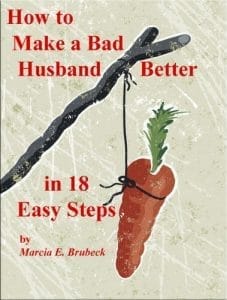
I Can’t Help It
As a psychotherapist, I work in a “helping profession.” It’s a label that many people swallow whole, without chewing. But what does it even mean?
Most people think professional caregivers focus not on making money but on serving others. Still, help is in the eye of the beholder. Who decides what is and isn’t helpful?
I am a social worker and proud of it. I am licensed by the state and overseen by the Department of Public Health. To acquire my license I had to go through a two-year master’s degree program and then, under Connecticut law, do 3,000 hours of direct service work with clients and receive 100 hours of supervision before sitting for an exam.
Without giving you the dull details, let me just say that to qualify for licensure new social workers mostly go into nonprofit agencies, public schools, and clinics to earn their spurs. These institutions serve socioeconomically challenged groups: the poor, the disabled, the elderly, children removed from their parents’ care, and other struggling humanity.
The new recruits are handed an agenda crafted by government authorities and/or medical professionals, who oversee their work. On the front line, the social workers interact with the client and execute instructions issued by higher-ups with which the direct care staff may or may not agree.
In other words, the workers act as buffers between the state and the clients.
Child welfare was the area in which I worked before licensure. Most of my hours were spent with families of children who were in foster care or in the process of being adopted.
The children I saw had mostly been removed from their biological parents, who were charged with abuse or neglect. My job was to facilitate the rehabilitation of the parents (sometimes), to support the foster parents (sometimes), and to make the children behave despite the anguish of losing their families (always).
The children always wanted to know when they were going home. They plunged into despair when they realized that they never would. Eventually they acted out their anger at having been betrayed and abandoned. They didn’t much like my job responsibilities, but they were hungry for some tenderness, a listening ear, and good toys to play with.
Was my work help? Certainly yes from the standpoint of the state, which wants to stop child abuse and make children behave. Whether or not the biological parents thought I was helping depended on how they saw their situation.
The children got the least real help. When all was said and done, they exercised no control over their situation. They could make themselves heard only through their voices and their bodies.
The children were painfully aware of their . . . helplessness. Worst, the care that the state found for them held more perils, statistically speaking, than their families of origin did.
As you might imagine, social workers often burn out, watching adults and children in agony at the mercy of a one-size-fits-all system. These professionals on the job, too, get all too little help. The agenda—for clients and professionals alike—seems less about help than about control from above.
What about help at home—what all of us seek in our personal lives even if we are not social workers? Unless we neglect or abuse our elders, our spouses, or our children, the state will not impose its protective services on us. But what sort of help do we get from each other?
Let’s consider a couple of examples.
You, my dearly beloved husband, an administrator at a well-regarded accounting firm in the city, are seriously overweight. You take your job very seriously. You work overtime regularly. You come home and drink four or five glasses of bourbon every night while snacking on salted pistachios and immersing yourself in the Wall Street Journal. You bark at me and ignore the kids.
Your lifestyle is unhealthy. You need help. I, your wife, am prepared to provide some. First let me give you some advice. You are courting a heart attack. You get no exercise, you spend too much time sitting, and you consume all of those empty alcoholic calories. Also, what kind of example are you setting for our children? Stop right now!
This speech may make me feel better. I can assert myself and seize control of the situation, which my anxiety certainly makes me eager to do. But does it help my husband? He may well ask me to shut up.
Or let’s say that I am male, and my wife has a mother who doesn’t drive and needs constant attention. My mother-in-law calls incessantly, asking for transportation to the drugstore, the grocery store, and the emergency room for a myriad of imaginary physical complaints. My wife dutifully complies with her parent’s every request.
My mother-in-law is consuming entirely too much of my wife’s time and energy. Surely my wife can see that this is so. She must set limits! She must stop pandering to this old lady with the outsized dependency needs.
Again, this speech may make me feel better. But is it help?
I think we all agree: help is action or behavior that makes things better for someone. That being said, we adults must all be considered equally good judges of what we personally find helpful. Despite differences in our bank accounts and in our power in the workplace, all grownups must be treated as the capable masters of their destiny until a probate court decides otherwise.
My husband is entitled to his high BMI, his paunch, and his bourbon. If I don’t like it, I should focus my attention on my own needs. My wife alone can decide how she wants to treat her mother. At the end of the day, she, and not I, will want to feel that she honored her mom as best she could in the years they shared. It is not up to me to determine what my wife can and can’t do.
There are certainly many ways of reaching out to people. The word “help” also has many different meanings. But as I learned on my first day at the School of Social Work, reading a poster on an office door, help is the sunny side of control.
If I want to do something for you, or you for me, the proper question is whether the helpee wants what is being offered. If you give me something I don’t want, you are actually trying to control me. It’s only help if I ask for it. The same goes for you.
We have the maximum amount of control over other humans when they are still in our wombs. After birth, our powers steadily diminish day by day. I can’t help it—and neither can you.
When you can’t take control, you don’t need to stay mum, however. You can voice your concern. You can say, “I am worried about you.” You can then say what is bothering you. Afterward you can add, “Is there anything I can do for you?”
If the answer is no, feel free to ask, “Will you let me know if there is?” Once you have gotten yes for an answer, you are done. You have shown respect for the other person. In particular you have acknowledged that person’s right to self-determination and responsibility for his or her own welfare.
This type of respect, part of the larger issue of boundaries, is perhaps the greatest gift we can give people we care about. When we honor the limits they set, we determine how much they trust us and how fully they share themselves with us.





